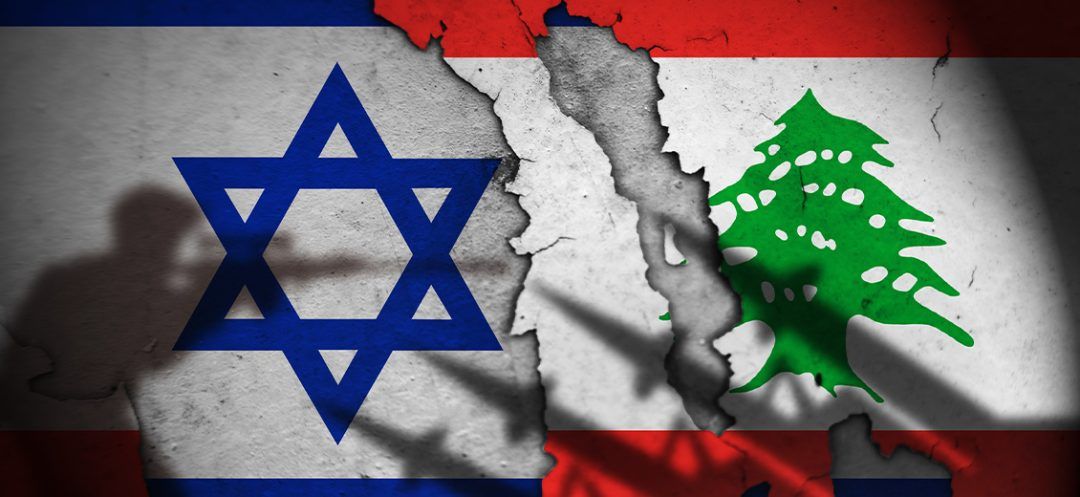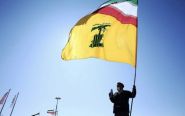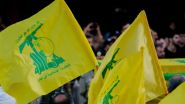
Sir Lawrence Freedman, a strategic expert and former advisor to 10 Downing Street (Executive office of the United Kingdom’s Prime Minister), asserts that Hezbollah is fighting for its “survival” in a war it has “already lost.” In an interview with This is Beirut, he noted that a significant regional shift could render Hezbollah vulnerable, restore Lebanon’s sovereignty, trap Iran, and strengthen Israel.
“Hassan Nasrallah’s assassination is a total decapitation for Hezbollah,” warned Sir Lawrence Freedman at a recent conference. His remarks underscore the seriousness of the situation, as he emphasized that “Israeli incursions into Lebanon could plunge the region into a wider conflict.” Freedman expressed deep concern over the escalating tensions, stating, “We have never been closer to an explosive and uncontrollable situation.” “The Middle East is on the verge of tipping over,” he said.
These comments were made during a conference held on Monday at Bush House in London, the former headquarters of BBC World News and now part of the King’s College campus. Titled “Lebanon in Crisis: An Informative Panel,” the event brought together experts to explore the urgent challenges facing Lebanon from various perspectives.
Among the speakers was Sir Lawrence Freedman, known as the “Dean of Strategic Studies.” He is an emeritus professor of war studies at King’s College London, where he previously served as vice-rector. A former director of Chatham House (Royal Institute of International Affairs) and ex-editor of Foreign Affairs, Freedman was a strategic advisor to Tony Blair during the wars in Afghanistan and Iraq, as well as a strategic war advisor at 10 Downing Street from 2010 to 2023. As the author of numerous reference works, he is a prominent figure in war studies, shaping the thoughts of leaders and scholars worldwide.
According to Sir Lawrence Freedman, Hassan Nasrallah’s assassination “marks a significant turning point for Hezbollah, leaving the organization without strategic direction and, consequently, unable to respond effectively to Israeli attacks.” Freedman observes that over the past 10 days, Nasrallah had witnessed the dismantling of much of his command structure. Now decapitated, Hezbollah finds itself on the defensive, disorganized and stripped of its ability to retaliate. He emphasizes that “without a leader, Hezbollah is gradually being disarmed, while its supply routes for arms, particularly from Iran, are becoming increasingly precarious.” He adds, “This situation is further exacerbated by the destruction of a bridge connecting Syria to Lebanon, which is crucial for resupply. Israel has adopted a targeted strategy that includes, among other measures, the elimination of Hezbollah's vital supply ducts. The first step of this plan is to disrupt the route between Beirut and Damascus, compounded by the threat of striking any Iranian aircraft landing at Beirut airport, aiming to financially corner the organization.”
When considering the conditions for ending the conflict, Sir Lawrence Freedman emphasizes that the Israeli approach to the 21-day ceasefire proposed by several Arab and Western nations reflects a familiar strategy, even though it is clear that such a ceasefire will ultimately need to be accepted. According to him, Netanyahu's perspective is that “there is no guarantee that after 21 days of truce, the necessary stability for the return of populations on both sides of the border will be assured.” He adds, “Israel has little confidence that Hezbollah will refrain from returning to the border areas, despite the presence of the Lebanese army or UNIFIL.”
Freedman highlights the notable absence of the Lebanese government in this situation. “Overwhelmed by the humanitarian consequences of the conflict—overburdened health services, food shortages, and internally displaced people living in precarious conditions,” he argues that Lebanon is “barely a functional State, reeling under colossal debts and a nearly worthless currency, already struggling to manage the Syrian refugees’ crisis and now facing an influx of those fleeing from border areas with Israel.” He asserts that the question of Lebanese sovereignty is crucial: “Official Lebanon must impose a ceasefire on Hezbollah through a unilateral agreement and regain control over the decision-making regarding war and peace.” However, Freedman noted that such a possibility is “virtually impossible due to Hezbollah's systematic grip on all affairs of the Lebanese State.”
Freedman argues that Hezbollah has little incentive to accept or negotiate a ceasefire. In fact, he believes that such an agreement would undermine Iranian interests and weaken their concept of unified fronts. According to him, “a ceasefire would mean abandoning Hamas,” as the opening of this front was intended to bolster the cause of Gaza. He asserts that “what began as a limited action to support Hamas has now evolved into a survival war for Hezbollah, which it has already lost.” Freedman points out that Nasrallah has made several strategic miscalculations, particularly in overestimating the level of international outrage over the humanitarian consequences of Israeli actions in Gaza, which might have pressured the Israeli government to move back. Consequently, he suggests that Israel may have opted to get rid of Hezbollah with the backing of the United States.
In this context, Freedman argues that “it would have been wiser to intervene forcefully after the Hamas attacks on October 7, as this would have complicated Israel's efforts in a two-front war.” He adds, “Hezbollah has failed to pose any significant challenges to Israel, instead providing it with justification and time to prepare for its confrontation with Hamas. Consequently, Israel has significantly weakened Hezbollah, humiliated Iran, and may have left Hamas even more isolated. However, Israel has long lacked a political strategy to complement its military approach, which adds to the uncertainty of the situation.” He concludes, “This conflict could drastically reshape the Middle East.”
In response to this, Sir Lawrence Freedman tells This is Beirut that change could unfold along four main axes. First, logistical weakening—covering both equipment and missiles, as well as human resources, especially at the command level—could significantly increase Hezbollah’s vulnerability. Second, although uncertain, the Lebanese State’s capacity to reclaim its rightful authority and sovereignty could prove crucial. Third, Iran would be compelled to react in an effort to reestablish a form of deterrence, but it might also find itself caught in a cycle of escalation. Finally, Israel could significantly reshape the balance of power in the Middle East by gradually dismantling Iran’s proxies, which are fundamental components to its approach of unified fronts.
Read more




Comments